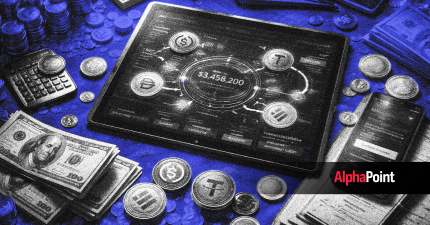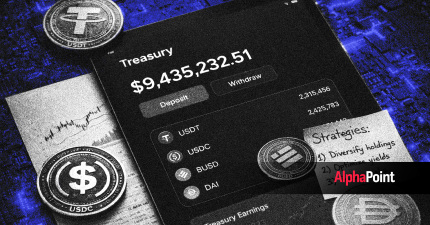Payment Gateway vs. Payment Processor: Breaking Down the Differences
The terms “payment gateway” and “payment processor” are often used interchangeably. While they sound similar and are both essential for processing payments, each serves a distinct purpose in ensuring transactions run smoothly.
Think of a payment gateway as the secure front door to your transactions, collecting and verifying payment information, such as credit card details. Meanwhile, a payment processor handles the behind-the-scenes work, moving funds between your business and the customer’s account. Understanding these differences is key to optimizing your payment system and minimizing unnecessary costs.
In this article, we’ll cover the main differences between payment gateways and payment processors, explain their individual functions, and show how they work together to streamline transactions.
What Is a Payment Gateway?
A payment gateway is a service that securely collects and verifies a customer’s payment information — similar to a point-of-sale (POS) terminal but for online transactions. It plays a crucial role in facilitating the authorization of electronic payments, including credit card payments and crypto transactions. For businesses exploring how to accept crypto payments, implementing a gateway is often the first step.
Payment gateways are typically integrated directly into a merchant’s website (known as a white-label payment gateway). However, some redirect customers to a different website to complete card-not-present transactions before returning them to the vendor’s site — this is called a third-party payment gateway.
Well-known gateways include Stripe, Stax, PayPal, Skrill, and B2BinPay.
How Payment Gateways Work
Before diving into how payment gateways work, let’s identify the key players involved in payment processing:
- Merchant: The business or individual selling goods or services — in person or online.
- Cardholder or customer: The individual making a purchase.
- Payment processor or payment service provider: An intermediary between the merchant and financial institutions that processes encrypted payment data and handles authorization with the cardholder’s bank to move funds.
- Issuer, issuing bank, or card issuer: The cardholder’s bank verifies if the customer has sufficient funds and that the account is valid.
- Acquirer or acquiring bank: The merchant’s bank, which routes the payment data to the issuer for authorization.
Payment gateways play a vital role in accepting payments by securely transmitting customer payment information and ensuring it reaches the processor for further verification.
Now, here’s how the payment gateway process works:
- The customer enters their card details — name, card number, card expiration date, and card verification value (CVV) — on the merchant’s payment page.
- The payment gateway encrypts the information using Secure Socket Layer (SSL) or Transport Layer Security (TLS) protocols and checks for fraud.
- The payment processor communicates with the credit card network (e.g., Visa, Mastercard) and the issuing bank to verify the details.
- The issuing bank responds with either an approval or a decline, which is sent back to the gateway through the processor.
- The gateway communicates the result to the merchant’s ecommerce website or app, completing the transaction.
In summary, payment gateways securely process payment details and facilitate authorization, ensuring that online retailers can accept payments seamlessly.
What Is a Payment Processor?
Whether you’re running a cryptocurrency exchange or any other business that handles online payments, you’ll need both a payment gateway and a payment processor.
A payment processor acts as the intermediary between the issuing and acquiring banks, ensuring that funds are securely transferred to the merchant’s account. It’s a key component of merchant services, managing everything from encrypting payment information to verifying transactions with the customer’s bank.
Businesses typically pay a fee for payment processing, which may be a percentage of the transaction amount or a fixed per-transaction fee. Pricing for payment processing services can vary based on the provider, transaction volume, and specific features required.
How Payment Processors Work
Payment processors do the heavy lifting behind the scenes, facilitating efficient in-store and online transactions. Here’s how the process unfolds in three key stages:
- Authorizing: The payment processor sends the customer’s payment information to the issuing bank for verification. The bank then approves or declines the transaction, and the payment processor relays this response to the merchant.
- Clearing: This stage involves confirming the accuracy of the transaction details, including the payment amount and any associated fees.
- Settling: During settlement, the issuing bank transfers the approved funds to the acquiring bank minus any processing fees.
Throughout these stages, payment processors ensure compliance with relevant regulations and monitor transactions for signs of fraud.
Key Differences Between Payment Gateways and Payment Processors
While payment gateways and payment processors are essential for handling transactions, they play different roles and offer unique functionalities. Let’s break down the key differences, from their roles in the transaction process to how they handle security and compliance.
Role in Transactions
Think of a payment gateway as the green light that signals the start of a transaction — it collects and securely transmits payment details to request authorization. The payment processor acts as the engine that powers the transaction, communicating with the bank to authorize the payment and moving funds from the customer’s account to the merchant’s.
Essentially, payment gateways facilitate the secure transfer of data while the processor handles the authorization and ensures the transaction is completed.
Key Features and Functionality
Payment gateways serve as customer-facing touch points during checkout, providing a secure, user-friendly interface while supporting a variety of payment methods.
Conversely, payment processors manage the technical aspects of verification, processing, and settlement.
Scope of Services
Payment gateways offer a range of customizable checkout options, allowing you to tailor your payment setup to suit your business needs. There are different payment gateway integrations for exchanges and small businesses — server-to-server integration, a hosted payment page, or local bank integration. These options facilitate digital payments across multiple platforms.
Payment processors provide more specialized services, including:
- Compliance with industry-specific regulations: Tailored to meet the regulatory requirements of specific fields, like healthcare and finance.
- Integration with CRM and ERP systems: Customizable to work with customer relationship management (CRM) and enterprise resource planning (ERP) systems.
- Adaptable to customer needs: Flexible in accommodating different currencies, payment methods, and transaction types based on specific customer behavior.
Security and Compliance Responsibilities
Payment gateways prioritize data security by encrypting payment information using tools like tokenization and adhering to standards such as PCI DSS. They also feature built-in fraud detection systems, offering real-time alerts and reports to keep transactions secure.
Payment processors focus on ensuring compliance with banking regulations and maintaining the integrity of transactions. They handle chargebacks (bank-initiated fund reversals) and ensure that payments meet industry standards.
User Interaction
One of the most noticeable differences lies in how customers interact with these systems. Payment gateways are customer-facing, providing the checkout experience, while payment processors operate behind the scenes, handling tasks without direct customer interaction.
How Payment Gateways and Processors Work Together
Payment gateways and processors play complementary roles in enabling secure and efficient transactions. Together, they facilitate the transfer of payment data and ensure communication between all parties involved.
The payment gateway encrypts the cardholder’s information and transmits it to the processor. The payment processor then forwards the data to the issuing bank for verification. Once the issuing bank approves or declines the transaction, the processor relays the response to the gateway, which notifies the customer of the transaction’s status.
Why Crypto Exchanges Need Both Payment Gateways and Payment Processors
Payment gateways and processors work hand-in-hand to support efficient payment processing. While their roles differ, they share the same goal: to ensure seamless and secure transactions.
Here’s why crypto exchanges benefit from using both systems:
Ensuring a Seamless User Experience
Payment gateways and processors are integral to delivering a fast and streamlined payment process. As touched on earlier, the gateway acts as the customer-facing component, capturing and encrypting payment data before sending it to the processor. The processor then works in the background as an intermediary, ensuring the secure transfer of funds between banks.
By using both systems, exchanges can provide fast and dependable payment solutions, which is crucial for maintaining user satisfaction.
Handling Fiat-to-Crypto and Crypto-to-Fiat Transactions
Crypto exchanges rely on both systems to manage cryptocurrency purchases and withdrawals in fiat currencies.
For fiat-to-crypto purchases, the gateway accepts the user’s payment and verifies their identity before passing the information to the processor. The processor then facilitates the conversion and credits the users’ wallets with crypto assets.
Withdrawals (crypto-to-fiat) follow a similar process. The payment gateway collects the user’s information and initiates the transaction, then forwards the details to the processor, which facilitates the transfer of funds to the user’s bank account or preferred withdrawal method.
Enhancing Security and Fraud Protection
With crypto crime on the rise, exchanges must prioritize protecting user data and funds. While they implement security measures like multi-factor authentication, payment gateways and processors add an extra layer of protection.
The gateway serves as the first line of defense, encrypting sensitive details such as debit or credit card information to reduce the risk of theft. The payment processor enhances security by monitoring transactions for fraudulent activities, like chargebacks, in real time, safeguarding both crypto assets and fiat currencies.
Streamlining Transactions and Expanding Access Across Multiple Payment Methods
Exchanges attract users by offering various payment options, including bank transfers, credit or debit cards, and cryptocurrencies. Payment gateways and processors help accommodate each method, ensuring smooth transactions. But what does it mean to be unbanked, and why does it matter here? Unbanked individuals lack access to traditional banking services, making it challenging for them to participate in the financial system.
A payment gateway provides a unified interface for users to select their preferred payment methods, while the processor manages the routing and processing to ensure funds are transferred successfully, regardless of the method chosen.
By supporting multiple payment options, these systems make it possible for even unbanked users to participate in the crypto market, expanding financial inclusion.
Empower Your Business With AlphaPoint’s Reliable Payment Processing Solutions
Payment gateways and processors work together to create a fast, secure, and accessible payment system. Gateways handle the initial collection and transmission of payment data, while processors ensure transactions are authorized and that funds and digital assets are transferred without a hitch.
AlphaPoint’s integrated payment processing solutions empower crypto exchanges to optimize payment flows, providing reliable and efficient transactions. With secure APIs at the heart of our infrastructure, we simplify the management of both crypto and fiat payments, delivering a flawless user experience.
Ready to transform your exchange’s payment capabilities? Request a demo today to see how AlphaPoint can elevate your business.


